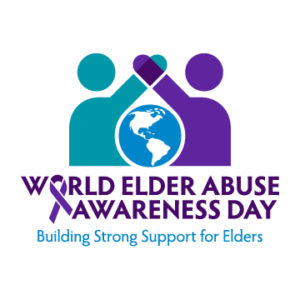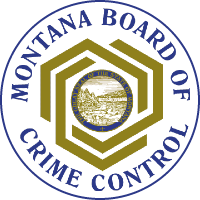Abuse in Later Life
Resist ageist assumption that older adults are not victims to sexual crimes. Domestic and Sexual Violence affects people across the lifespan including individuals later in life.
Getting Help
If you or someone you know is experiencing harm, help is available. In cases of emergency, always contact 911.
Contact Adult Protective Services
- APS.MT.Gov
- 1-844-277-9300 (M-F 9am-5pm)
If in Care Facility, Contact Senior Long Term Ombudsman
- 1-800-551-3191 (M-F 9am-5pm)
Free And Confidential Hotlines Available
24 hours a day, 7 days a week
- National Sexual Assault Violence Hotline - 800-656-4673(HOPE)
- National Domestic Violence Hotline - 800-799-7233(SAFE)
- SAGE National LGBT Elder Hotline - 877-360-5428(LGBT)
Elder Abuse Facts
What is Elder Abuse?
In Montana, abuse, neglect, or exploitation generally refer to any physical, sexual, or psychological abuse, neglect, abandonment, or financial exploitation of an older adult.
- Emotional or psychological harm refers to verbal or nonverbal behaviors that inflict anguish, mental pain, fear, or distress. This may include, but is not limited to: verbal assaults, insults, threats, intimidation, humiliation, and harassment. In addition, inappropriately treating an older adult like an infant, isolating from family/friends or regular activities, giving the ‘silent treatment’ and enforced social isolation.
- Exploitation is the illegal, unauthorized, or improper use of older adult’s money, benefits, shelter, clothing, belongings, property, or assets for the benefit of someone other than older adults.
- Physical harm is use force that may result in bodily injury, physical pain, or impairment. This may include but is not limited to shaking, burning, kicking, pinching, and slaps. In addition, inappropriate drugs and physical restraints, force feeding, and physical punishment of any kind physical punishment of any kind.
- Sexual harm is non-consensual sexual contact, comments, or action of any kind. This may include but is not limited to unwanted touching, all types of sexual assault or battery(rape), sodomy, coerced nudity, sexually explicit photographing, harmful genital practices (i.e. excessive or forceful bathing), voyeurism, and exhibitionism.
How common is Elder Abuse?
Elder abuse is common. Abuse, including neglect and exploitation, are experienced by about 1 in 10 people aged 60 and older who live at home. From 2002 to 2016, more than 643,000 older adults were treated in the emergency department for nonfatal assaults and over 19,000 homicides occurred. (Center for Disease Control)
Around 1 in 6 people 60 years and old experienced some form of abuse in community settings during the past year. (World Health Organization)
Who is affected?
Unfortunately, 1 in 6 older adults (age 60 and higher) are affected. Older adults of all races, genders, sexuality, mobility, and socio-economic status may experience abuse. But elder abuse doesn’t only happen to the frail and sick. Older people with dementia are at special risk. As many as 2 out of 3 people with dementia have been abused (World Health Organization)
I suspect someone or myself is experiencing harm. What do I do?
Contact Law Enforcement about your concerns. In cases of emergency, always contact 911.
Resources and Tools

Resources
- Elder Abuse LibGuide
- NCALL Abuse in Later Life Power & Control Wheel
- National Clearinghouse on Abuse in Later Life
- World Elder Abuse Awareness Day
Videos
Elder Abuse and Diversity
- Elder Abuse of People with Disabilities
- LGBTQ Aging Center National Indian Council on Aging
- National Indigenous Elder Justice Initiative
- National Hispanic Council on Aging
- SAGE
- The Diverse Elders Coalition
- Top Scams Targeted to Seniors
For Law Enforcement
Frequently Asked Questions About Elder Abuse, Neglect, and Exploitation
Technology and Safety
- Tech Tips for Older Adults: Online Privacy and Safety
- Technology and Abuse in Later Life
- Additional Resources
Other
All information is taken from national elder abuse sources. MBCC does not hold the copyrights to any production or media. All sources are listed.
